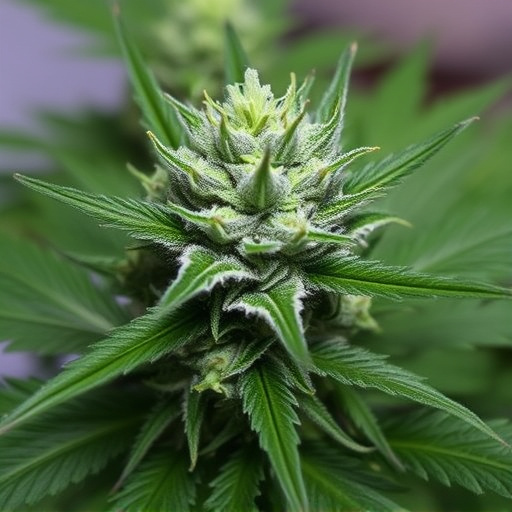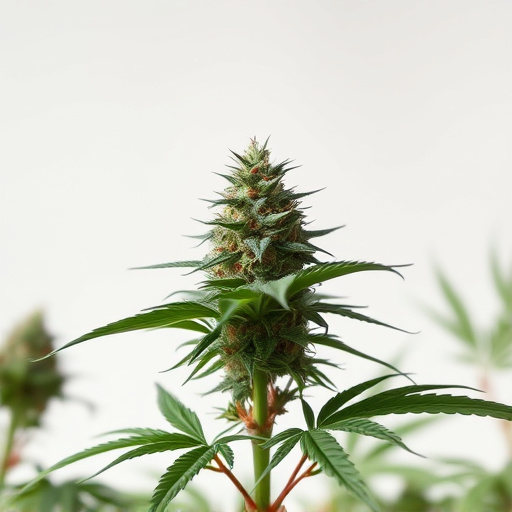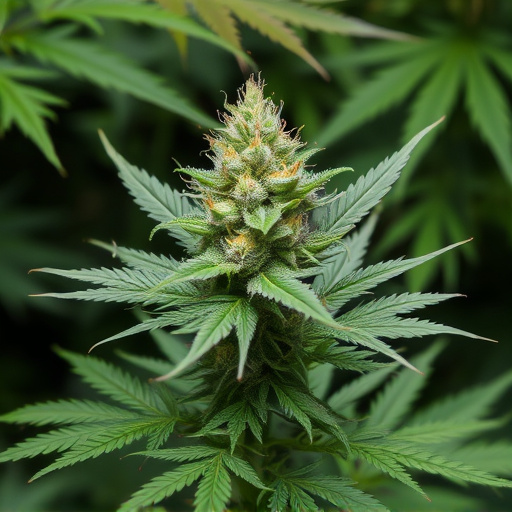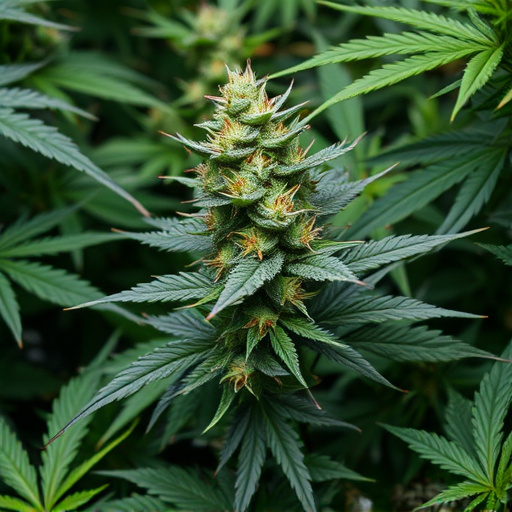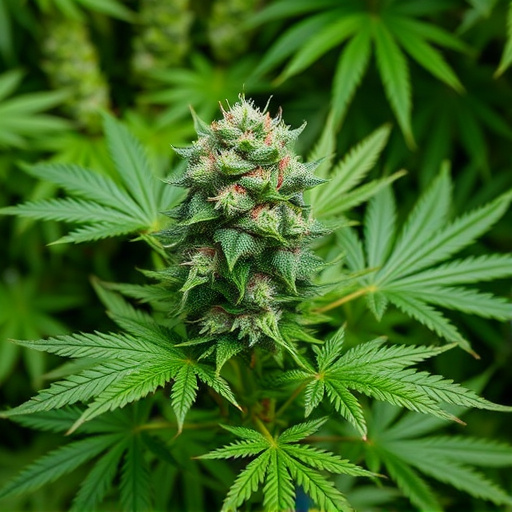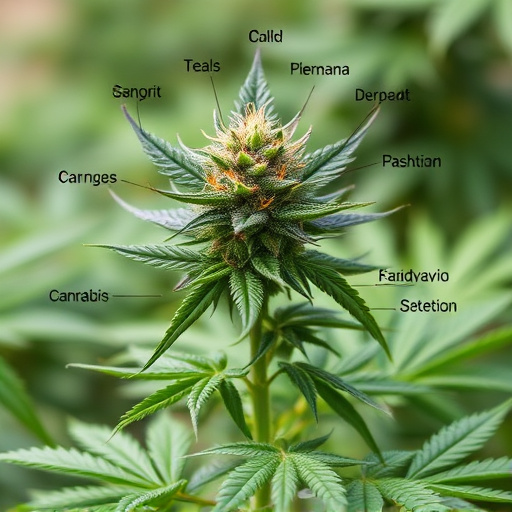Sleep quality, influenced by genetics, lifestyle, and environment, can be improved naturally through specific strains of cannabis that interact with the endocannabinoid system. High CBD content promotes relaxation and reduces anxiety, while balanced THC strains encourage deeper sleep without cognitive impairment. Indica strains, rich in THC, offer sedative effects for insomnia relief, while Sativa strains, though energizing, can alleviate anxiety when combined with CBD. Proper strain selection, low doses before bed, and consultation with healthcare professionals are crucial for maximizing the therapeutic benefits of cannabis for sleep disorders while mitigating potential side effects.
“Enhance your sleep quality with a natural ally—cannabis. This plant, with its diverse strains, has gained attention for its potential to revolutionize rest. In this article, we explore how cannabis interacts with our sleep patterns and uncover the science behind its effects. Discover the various strains tailored to specific sleep needs, from inducing relaxation to promoting restorative cycles. Balancing benefits and safety, we guide you through optimizing sleep using these natural remedies, offering a holistic approach to rest.”
- Understanding Sleep Quality and Cannabis: The Science Behind It
- Different Strains of Cannabis for Various Sleep Needs
- Potential Benefits and Safety Considerations for Better Sleep
Understanding Sleep Quality and Cannabis: The Science Behind It

Sleep quality is a multifaceted aspect influenced by various factors, including genetics, lifestyle, and environmental conditions. Understanding sleep involves recognizing its different stages—light sleep, deep sleep, and rapid eye movement (REM)—each with distinct roles in physical and mental restoration. High-quality sleep enhances cognitive function, bolsters the immune system, and promotes overall well-being.
Cannabis has been a subject of interest for its potential impact on sleep due to the diverse strains available and their unique chemical compositions. Scientific research suggests that specific cannabinoids present in cannabis interact with our endocannabinoid system (ECS), playing a role in regulating sleep-wake cycles and mood. Different strains, with varying concentrations of THC (tetrahydrocannabinol) and CBD (cannabidiol), can offer tailored benefits for individuals seeking better sleep quality. For instance, higher CBD content is often associated with promoting relaxation and reducing anxiety, while balanced or lower THC strains are preferred for their potential to induce deeper, more restorative sleep without the cognitive impairment linked to higher THC consumption.
Different Strains of Cannabis for Various Sleep Needs
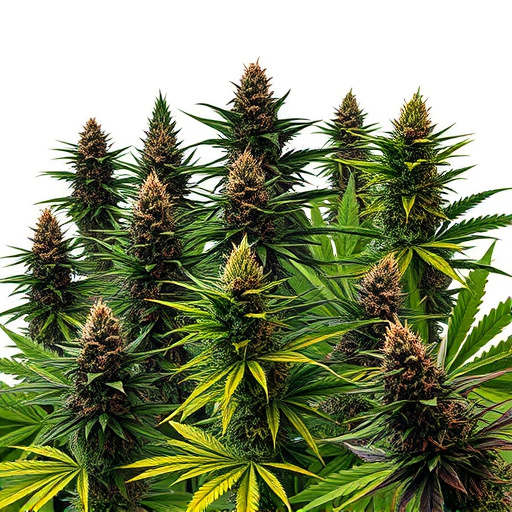
Cannabis offers a diverse range of options for those seeking better sleep, with various strains catering to different needs. Indica strains are renowned for their relaxing and sedative effects, making them ideal for promoting deep sleep and alleviating insomnia. These plants contain higher levels of THC, known for its ability to interact with the body’s endocannabinoid system, which plays a significant role in regulating sleep-wake cycles.
Sativa strains, on the other hand, provide a more energizing and uplifting effect, making them less suitable for bedtime consumption. However, specific Sativa varieties with balanced THC and CBD levels can aid in reducing anxiety and stress, improving overall sleep quality without causing excessive drowsiness. This highlights the importance of choosing the right strain to align with individual sleep goals and preferences.
Potential Benefits and Safety Considerations for Better Sleep

Cannabis has long been known for its potential to improve sleep quality, offering a natural alternative for those struggling with insomnia or other sleep disorders. The key lies in understanding different strains of cannabis and their unique chemical profiles, particularly cannabinoids like THC and CBD. Certain strains, rich in CBD, are renowned for their calming effects, helping to relax the mind and body without inducing the psychoactive high associated with THC. This makes them a safe choice for those seeking better sleep without altering their mental state.
While cannabis can be beneficial, it’s crucial to approach its use for sleep thoughtfully. Dosage is critical; starting with low amounts and gradually increasing can help avoid adverse side effects like anxiety or paranoia. Moreover, timing is essential—consuming cannabis an hour or two before bed may provide the best results without interfering with morning routines. Safety considerations also extend to consulting healthcare professionals, especially if managing pre-existing health conditions or taking other medications, as cannabis can interact with certain drugs.
Cannabis, with its diverse strains, offers a natural approach to enhancing sleep quality. Understanding the science behind its effects allows individuals to make informed choices based on their specific needs. Different strains cater to various sleep requirements, whether it’s promoting relaxation or alleviating insomnia. By considering safety precautions and consulting experts, one can harness the potential benefits of cannabis for better rest. Exploring these options may lead to improved sleep patterns and overall well-being.





